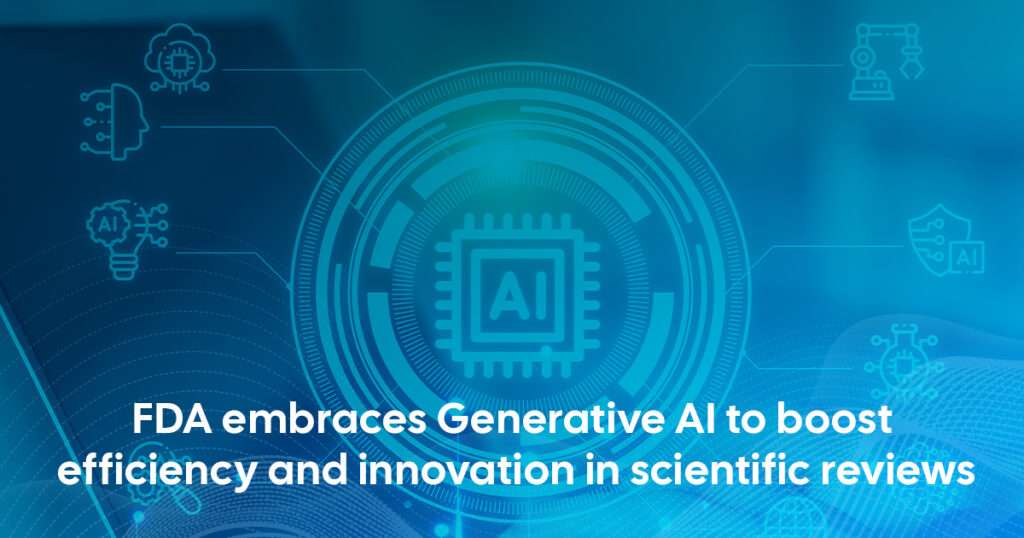In a watershed moment for regulatory innovation, the U.S. Food and Drug Administration (FDA) has announced the successful completion of its first AI-assisted scientific review pilot, signaling a bold step forward in modernizing the agency’s internal operations. The announcement, made by FDA Commissioner Dr. Martin A. Makary on May 8, 2025, sets forth an ambitious yet transformative agenda: full-scale integration of generative AI tools across all FDA centers by June 30, 2025.
“We need to value our scientists’ time and reduce the amount of non-productive busy work that has historically consumed much of the review process,” said Dr. Makary.
More than a tech upgrade, this represents a cultural transformation in the FDA’s regulatory approach. By reducing time spent on repetitive, low-value administrative tasks, the FDA is allowing scientific and regulatory experts to focus on higher-order analysis, accelerating critical decisions for public health.
What Did the Pilot Achieve?
The pilot program used generative AI technologies to support scientific reviewers in handling tasks that are typically labor-intensive. Jinzhong (Jin) Liu of the CDER noted that work that once took two to three days could now be completed in around six minutes. The magnitude of efficiency unlocked is transformative.
The pilot demonstrated that generative AI can:
- Parse large volumes of clinical and preclinical data quickly
- Auto-summarize scientific dossiers and submissions
- Highlight inconsistencies or missing data for reviewer attention
- Generate initial drafts of review comments or decision memos
What Comes Next?
The FDA will now pursue an agency-wide deployment across all centers by the end of June 2025. Each center will gain access to a common, secure generative AI system, integrated with internal data platforms, with further customization expected post-rollout to fit individual center workflows.
Jeremy Walsh, the newly appointed Chief AI Officer, and Sridhar Mantha, former head of CDER’s Office of Business Informatics, will lead the rollout. Their combined expertise in enterprise-scale federal tech deployment ensures a robust transition grounded in governance, security, and regulatory compliance.
Key priorities include:
- Enhancing usability of AI tools for different scientific domains
- Enabling deeper integration with regulatory documentation platforms
- Gathering real-time feedback to iteratively improve AI outputs
- Ensuring strict data privacy and policy adherence
Why This Matters
The implications of this announcement are far-reaching for the life sciences industry. With faster and more efficient regulatory reviews, therapies, especially those for rare, urgent, or unmet medical needs and could reach patients sooner. For sponsors, this also means clearer expectations, improved submission quality checks, and potentially reduced regulatory lag.
Moreover, the FDA’s leadership in adopting generative AI may prompt global regulators to explore similar advancements, setting the stage for harmonized, tech-enabled regulatory science.
Futuristic Vision
This is not merely a pilot success story, but a declaration that the FDA is ready to lead by example in embracing next-gen tools for public health. As Commissioner Makary rightly emphasized:
“There have been years of talk about AI capabilities… It is time to take action.”
The June 30 deadline marks the beginning of a new era for regulatory review powered by human expertise and machine intelligence working in tandem.
Discover how we leverage cutting-edge technologies like AI to streamline your regulatory processes and accelerate product approvals.
Contact us today to learn how DDReg can support your journey toward faster, smarter regulatory compliance.
Read more from our experts here: New INVIMA Plan Aims to Streamline Regulatory Processes in Colombia

